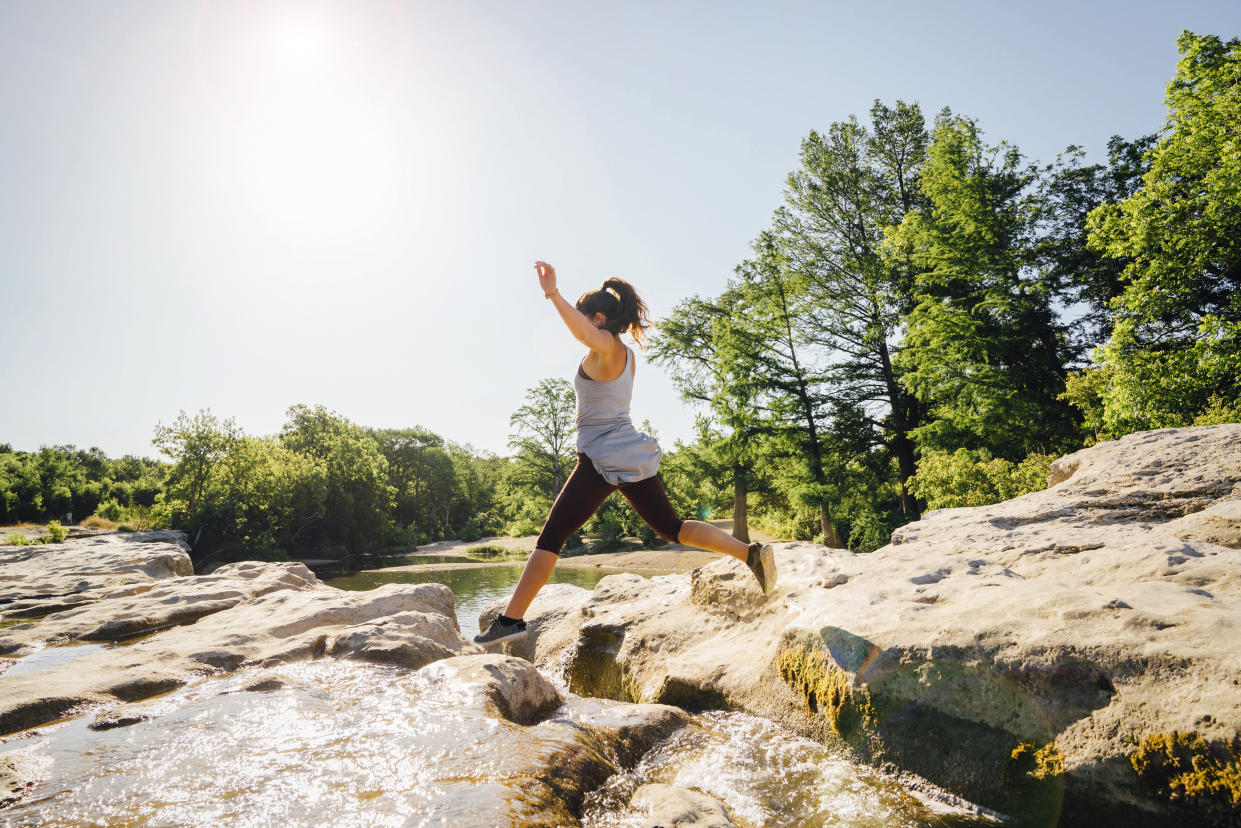5 things to do now to lower your odds of developing osteoporosis in the future

It’s easy to assume that osteoporosis is something you won’t have to think about until you’re older, but doctors say that’s a big mistake.
“The things you do now can have an impact on your bone health when you’re older,” Scott Kaiser, MD, a family physician and geriatrician at Providence Saint John’s Health Center in Santa Monica, Calif., tells Yahoo Lifestyle.
Osteoporosis is a disease that happens when the body loses too much bone, makes too little bone, or does a combination of both, according to the National Osteoporosis Foundation (NOF). The disease can be debilitating. When someone has osteoporosis, their bones become weak and can break from a fall or, in severe cases, from something as simple as a minor bump or sneezing.
Osteoporosis is common — about 54 million Americans either have the condition or low bone mass, which puts them at risk of developing the disease, the NOF says. There is a wide range of factors that can increase your risk of developing osteoporosis, including having a family history of the disease, taking certain medications like aluminum-containing antacids or steroids, extreme weight loss, and poor nutrition.
While some things, like genetics, can’t be helped, there are some lifestyle changes you can make to lower your risk, Laura Ryan, MD, an endocrinologist at the Ohio State University Wexner Medical Center, tells Yahoo Lifestyle. Try the following to set yourself up for good bone health in the future:
Eat a well-balanced diet
While getting a good mix of fruits, vegetables, and lean proteins is crucial, “it’s especially important to get plenty of calcium and vitamin D in your diet for bone health,” Kaiser says.
Calcium is a mineral that builds bones and keeps them healthy, but your body can’t produce its own calcium, making it essential to get it from the foods you eat. And, if you don’t get enough calcium in your diet, your bones can become weak and put you at risk for osteoporosis, Ryan says. (Women who are 50 and younger and men 70 and younger should strive to have 1,000 milligrams of calcium daily, the NOF says.)
“It’s more important to get calcium from your diet than supplements,” Ryan says. That means eating plenty of dairy products, such as milk, yogurt, and cheese, as well as certain green vegetables (kale, collard greens, bok choy) and calcium-fortified breakfast foods, soy milk, cereals, snacks, and breads.
Vitamin D is another important nutrient for bone health — it helps your body absorb calcium and supports muscles needed to avoid falls. (People 50 and younger need 400 to 800 international units of vitamin D a day, the NOF says.) Sunlight is one of the main sources of vitamin D, but it can also be found in supplements and foods such as fatty fish. It’s also often added to milk, orange juice, soy milk, and fortified cereals, Ryan notes.
Avoid crash dieting and undernutrition
This is twofold. For starters, it goes back to needing the right nutrients in your diet for bone health — if you don’t have enough calcium, vitamin D, and other nutrients such as protein, you’re increasing your risk of osteoporosis, Kaiser says. But not eating enough can also cause a woman’s periods to stop, and that can decrease the amount of estrogen in her body, leading to a loss of bone mass, Ryan says.
Take it easy on alcohol and caffeine
Having some alcohol and caffeine is okay for your bone health, Ryan says. The problem is when people have too much of them. “The amount of alcohol that increases bone fragility is three servings per day,” Ryan says. “You want to avoid drinking heavily.”
Coffee, tea, and sodas contain caffeine, which may decrease calcium absorption in your body and lead to bone loss, the NOF says. That’s why the organization recommends having no more than three cups of coffee a day.
Do weight-bearing exercises
Both high- and low-impact weight-bearing exercises can help build bones and keep them strong, Kaiser says. “Weight-bearing exercises are very critical for our bone health,” he says. “The bone responds to force by becoming stronger. It’s just the right amount of stress but not too much.” That can mean doing exercises ranging from dancing, hiking, running, and tennis to using the elliptical machine, stair-step machine, and weights at the gym.
Avoid smoking
Smoking has been shown to reduce bone mass. “People who smoke have worse bone quality and are more likely to fracture,” Ryan says. If you smoke, talk to your doctor about proven methods to help with quitting.
If you’re concerned about your future bone health or aren’t sure if you’re doing what you can to build up good bones, talk to your doctor. “Any time is a good time to have a discussion with your doctor about this,” Ryan says.
Read more from Yahoo Lifestyle:
Follow us on Instagram, Facebook and Twitter for nonstop inspiration delivered fresh to your feed, every day.
